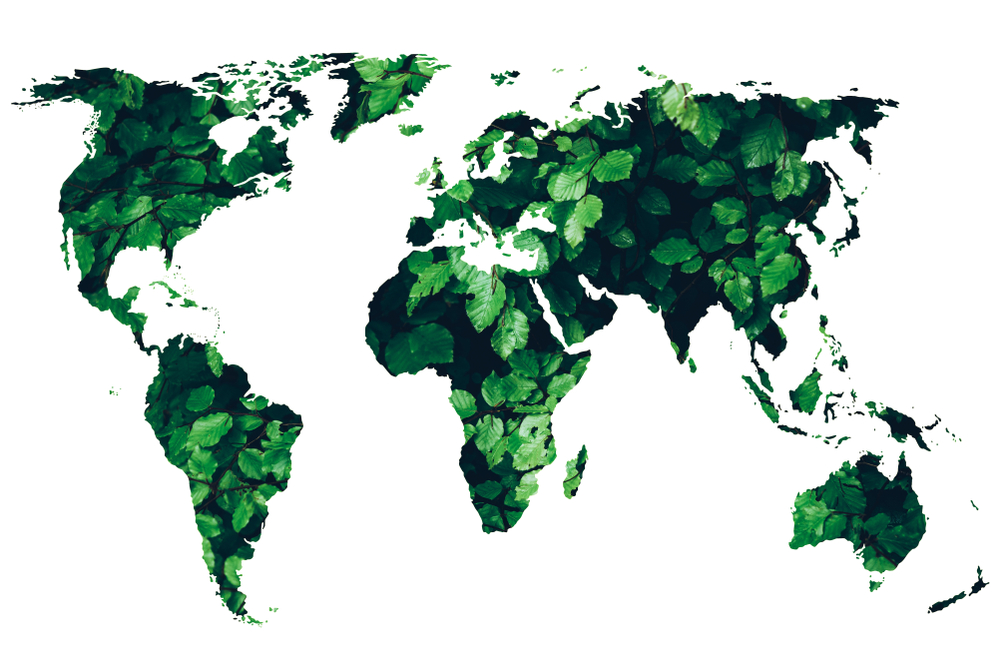In the past few years, there’s been an especially concerted focus around the globe to make systemic changes that make us better stewards of our planet. As in any time of growth and change, there’s much to learn from countries leading clean, green initiatives.
To determine which countries have the most sustainable practices, we turned to the Environmental Performance Index (EPI). The EPI is a biennial study of 180 countries, run by Yale, that analyzes each country’s environmental efforts based on 24 performance indicators across 10 overarching categories. Analyzing this information, Yale assigns a score to each country and ranks them accordingly in their EPI report.
The most recent EPI was released in 2018 (keep an eye out for the 2020 report this June). The 2018 report placed Switzerland, France, and Denmark at the very top of eco-friendly behavior. These countries give the rest of the world something to observe, as the highest score awarded by the EPI is only 87.42/100. There’s always room for improvement.
In this post, we’re diving into the various approaches taken by these top-ranked countries, from preserving the existing natural resources, to creating green innovations, and to build to a more micro level of establishing a cleaner culture in their capitals.
#1 – Switzerland
EPI Score: 87.42
Top Categories: Climate & Energy, Air Pollution, Water & Sanitation, and Managing Water Resources
What We Can Learn From the Swiss
As far as the natural environment goes, Switzerland hit the jackpot. Beautiful mountains, fresh and plentiful water, and magnificent countrysides are all that can be found within their borders. But simply having these resources to start isn’t why they are at the top of EPI and plenty of “best places to live” lists. What the Swiss have done well is to recognize the importance of these natural resources and have made a long-term commitment to preserving them.
- They implemented environmental policies that give priority to the use of renewable energy.
- To protect their countryside, they enacted the Spatial Planning Act in 2013, which aims to help higher-density urban planning by economically using the currently available urban space and limiting the spread of new building zones.
- They focus on reducing their emissions of greenhouse gases and have increased their carbon tax.
- Preserving their world-renowned water quality has long been a priority to the Swiss. In the 1960s/70s they built a network of forward-thinking water purification stations. Today they have moved to improve their treatment of wastewater in more than 100 plants with a target of 2030 for completion.
- Through continual air quality efforts, over the last 25 years, Switzerland’s emission of damaging fine particles has dropped more than 50%. They are continuing these efforts through strict standards for CO2 emissions for the car industry. Car companies are now required to use high-performance filters and catalytic converters in their Swiss models.
- With a forward-thinking initiative to protect its soil, Switzerland provides farmers tools to limit the permanent damage to the land and have trained specialists to advise contractors on major development projects.
#2 – France
EPI Score: 83.95
Top Categories: Air Pollution, Sustainable Nitrogen Management, and Biodiversity & Habitat
What We Can Learn From the French
The French have dedicated their eco-friendly efforts to how urban environments can work to protect the Earth, a critical drive as we continue to grow and develop as a global society. Being green is a battle on two fronts: preserving our natural resources as much as possible and limiting the damage we are causing through the creation of resources we need. France has taken that second initiative and run with it.
- In 2018, they built the world’s first fully recycled road by using ground up and repurposed material from old roads.
- In 2016, they completed the world’s first “solar-powered road.” The 1km strip of road was built using drivable solar panels that generate enough power for all the streetlights in the village.
- Also in 2016, France became the first country to ban supermarkets from throwing away good quality but unsold food. Instead, they must use it as donations for charities, food banks, or animal feed.
- Looking to the future, France has plans in place to:
- Ban clothing stores from throwing away unsold clothes
- Establish a trade-in program to pull old, polluting cars off the road
- Double France’s wind power capacity by 2023
- Build a hydro turbine farm in the Rhone river
- Establish a system where non-recyclable packaging costs more and sustainable packaging costs less.
#3 – Denmark
EPI Score: 81.60
Top Categories: Air Quality and Sustainable Nitrogen Management
What We Can Learn From the Danish
Denmark has built a green culture in their country through the example they established in their capital, Copenhagen. By dedicating their capital to an eco-friendly culture, Denmark is leading by example for its citizens to care for the planet and try to be green. The three major pillars of this environmental protection are bikes, wind, and trash.
- Offshore wind farms are a staple of Copenhagen. These along with others throughout the country provide more than 40% of Denmark’s energy supply.
- Middelgrunden Offshore Wind Farm is 50% owned by Denmark citizens, 50% owned by investors. By directly incorporating the average citizen, the Dutch have created a climate-friendly culture that is directly invested in its success.
- Denmark is the world’s leader in wind technologies and aims to make Copenhagen the first carbon-neutral capital in the world through building 100 more large wind turbines.
- In the 1960s, Copenhagen took on an initiative to establish a biking culture. They did so through limiting parking within the city center, raising taxes on cars and gas, and installing bike racks, lanes, and traffic lights.
- In the city center, they have a trash incinerator plant, Amager Bakke. This plant is incredibly efficient, converting waste to energy, heating the city while cutting CO2 emissions by 99.5%. In order to fit within the city, it’s designed to fit into the cityscape along with being pollution and odor-free.
- All of this is made possible through high taxes. Through establishing a green culture at the micro-level, Copenhagen’s citizens are committed to making their city and country better.
The Takeaways
Switzerland, French, and Denmark all top the EPI list through different approaches. There’s much to be learned from each of them, as well as a ton they can learn from each other. While the details vary, the basis of every eco-friendly country is acknowledging that there are issues with how things are currently being done, committing to improving, and establishing cultural buy-in from your citizens.
As a Chinese Proverb said, “The best time to plant a tree was 20 years ago. The second best time is now.”







